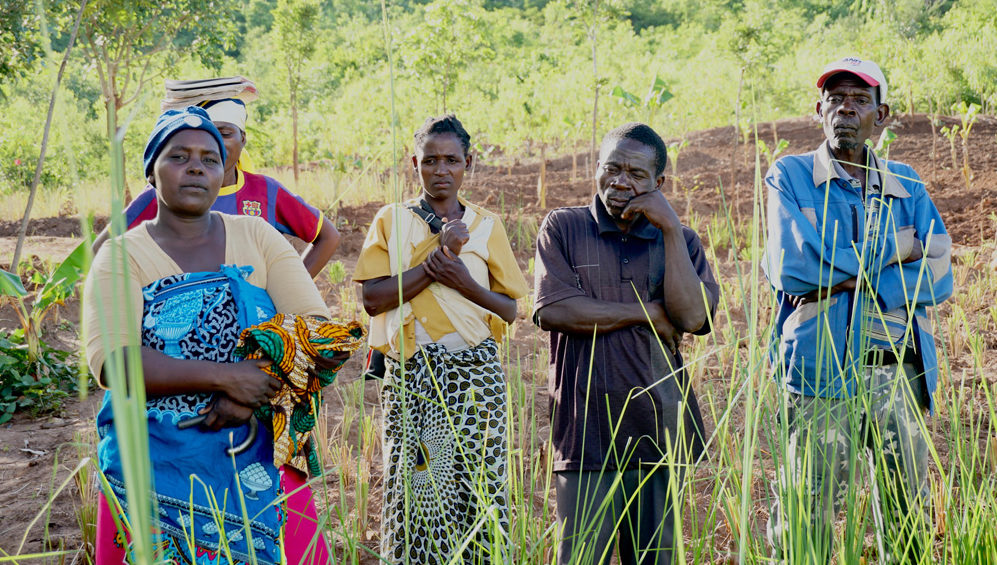More than half of the agricultural labour force in Malawi are women. However, they rarely get their fair share for the hard work they do in the fields – female farmers earn three times less than their male compatriots. Women’s rights to access advanced agricultural tools and larger land plots are limited, which results in lower productivity of their farms. And with agriculture accounting for about one-third of the country’s GDP, gender inequality is holding Malawi back.
So, improving productivity among female farmers can step forward Malawi’s development and address its staggering poverty levels. But how to do that? Anderson Gondwe (Center of Social Research at the University of Malawi) explores in a policy brief, produced with support from AgriFoSe 2030.
Why do gender gaps exist?
Gender inequalities are found in all socio-economic areas in Malawi, not only in agriculture. Namely, education, health, political representation and participation in the formal labour market are marked by structural inequalities between men and women in the country. All of these sectors set the operational setting for agricultural development, and so gender inequality perpetuates, manifesting most severely at the very base of Malawi’s agrarian economy – the food production level.
Access to farm labour is one example. Due to traditional gender norms, women farmers are usually also in charge of taking care of cooking, cleaning and looking after the kids and the elderly. Thus, they tend to work mostly at home and rely on household labour or family members and do not have the resources to hire people. Unpaid home duties limit the time women have to do farming. And, even when they may spend more time in the field, their productivity is lower compared to that of male farmers.
The reason for low productivity among female-led farms lurks in discriminating land rights and traditional social norms. For instance, women tend to have a lower level of education compared to their male counterparts, so they often do not know their rights or ways to claim them.
Patriarchal inheritance rules and marriage systems do not help either – women rarely own the land they farm. And, when they do, their ownership rights are more limited than of male farmers. It is also not uncommon that women are allocated less fertile land. For the same reasons, female farmers struggle to get access to credit or agricultural technologies, which directly interfere with their productivity. In other words, women in Malawi encounter a systematic disadvantage when it comes to land, farm labour, education and finance.
How will Malawi benefit from investing in gender equality?
Improving gender equality in agriculture will help Malawi develop economically and achieve it in a more inclusive way, which will address inequality. With 30% of the GDP coming from agriculture, Malawi cannot afford underperforming farming. So, helping female farmers to be more productive through education and equal access to land is key.
Interestingly, Malawi does not suffer from the lack of gender equalizing policy instruments. Gender issues have been included in the previous and the current development strategies of the country, while the Ministry of Gender, Children, Disability and Social Welfare, which oversees all gender-related policies, has put together a national gender policy. Moreover, Malawi’s gender policies are in line with international and regional treaties and with the Sustainable Development Goals.
Generally, the analysis shows these different policies seem to make some impact – Malawi is rated 172 by the Gender Inequality Index, its score went down from 0.654 in 2005 to 0.591 in 2013, which was an encouraging signal for policymakers. After that, the country went back to score 0.615 in 2018. Low policy implementation and enforcement are likely to be the reason why.
Removing discriminatory laws when it comes to land access, careful supervision and enforcement of this process will be a major first step. It is also critical to facilitate access to banks in rural areas so women can access credit. Other action points should be about education, training and information sharing. Building gender-sensitive social structures, investing in training for women and making sure that they can access and use modern farming technology and information will help Malawi to create an enabling environment for female farmers, so they can thrive and help lift their country out of poverty.
Reporting by Sarah Chabane, Communications Intern at the Stockholm Environment Institue, SEI.
